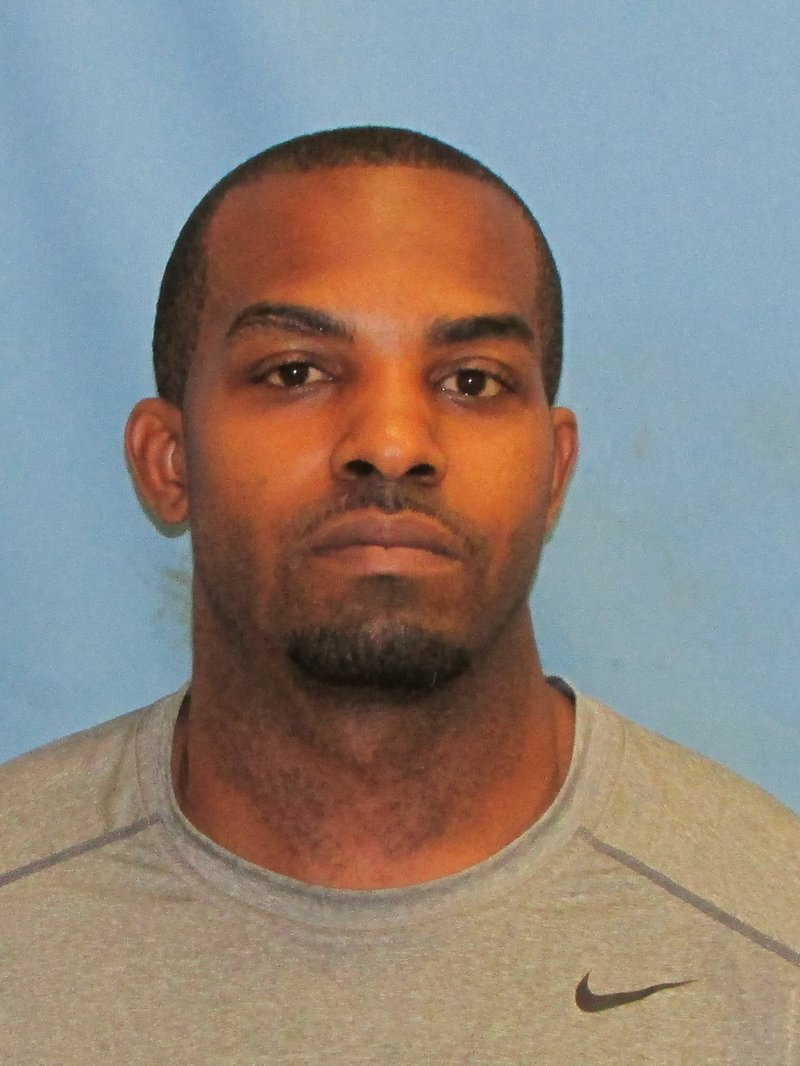A suspected brain injury from 14 years of playing football, a positive attitude and the support of a treatment center director led a federal judge to impose a no-prison sentence Thursday for former Arkansas Razorback Cedric Cobbs.
Cobbs, 35, who left Arkansas in 2004 to join the National Football League, where he was a running back for the New England Patriots and the Denver Broncos, also had the support of a federal prosecutor who told the judge that Cobbs was a minor player in a prescription pain pill conspiracy.
A Drug Enforcement Administration investigation that began in 2013 in response to reports of people selling bulk quantities of oxycodone pills and other regulated narcotics resulted in the October 2014 indictment of 33 people, including Cobbs. He pleaded guilty in December to a charge of using a telephone to facilitate the distribution conspiracy, and in return, prosecutors dropped another telephone charge and the conspiracy charge.
In December, Cobbs had been a patient for nearly four months at The Crosby Center, a clinic in Escondido, Calif., that specializes in sports-related brain injuries.
His attorney, Jonathan Lane of Little Rock, told U.S. District Judge D. Price Marshall Jr. in a pre-sentencing memorandum that Cobbs is believed to suffer from chronic traumatic encephalopathy, a progressive degenerative disease of the brain found in people with a history of repetitive brain trauma. Common symptoms include memory loss, confusion, impaired judgment, impulse control problems, aggression, depression, suicidal thoughts, Parkinsonism and, eventually, progressive dementia, according to the memo.
Lane said Cobbs' progress reports at the facility, where he remains an inpatient, "are very positive but recommend continued treatment."
Lane gave the judge a letter from the clinic's director, Larry Burns, which cited Cobbs' "meaningful participation" in therapy sessions, his strong support of other patients and his participation in volunteer activities, as well as good results from adhering to the clinic's curriculum to improve brain function.
In another letter written in support of Cobbs, his mother, Glendree Cobbs, wrote that he "worked his way into the spotlight" at J.A. Fair High School in Little Rock before becoming a celebrity during his time at the University of Arkansas in Fayetteville and then being drafted into the NFL.
She called him a humble, good-hearted, hard-working person who missed out on a normal teenage lifestyle, and then became disappointed when he returned to Little Rock and couldn't get a job that paid well enough to take care of his family.
Cobbs told the judge much the same thing on Thursday, saying his inability to provide for his son and two daughters led to depression.
"I became desperate. I became angry," he said. He said he and his wife divorced, and "I felt that I was pretty much out here alone ... with no one showing me direction. I felt invisible."
Cobbs said those feelings led to his involvement with prescription drugs, which led to the charges against him. Now, he said, he has "more hope" and knows "that I'm not invisible."
"I feel like I can help other people who don't feel like anyone understands them," he told Marshall.
Assistant U.S. Attorney Chris Givens said he didn't object to a probationary sentence because Cobbs' bad judgment is believed to have stemmed from a brain injury and he is now getting help. Givens said three women who have pleaded guilty in the case also were low-level participants and received probation, and he doesn't "see any reason to set Mr. Cobbs apart from them."
Federal sentencing guidelines recommended eight to 14 months in prison, with probation as an option, for Cobbs' admitted activity: delivering oxycodone pills to Charolda Walton, accused of being the leader of the conspiracy, on March 16, 2014.
Marshall sentenced Cobbs to three years of probation, including 150 hours of community service work. Marshall said Cobbs must continue treatment for drug addiction and mental health counseling under the guidance of U.S. probation officers after he is released from The Crosby Center, and will be subject to periodic drug testing.
Metro on 07/22/2016
